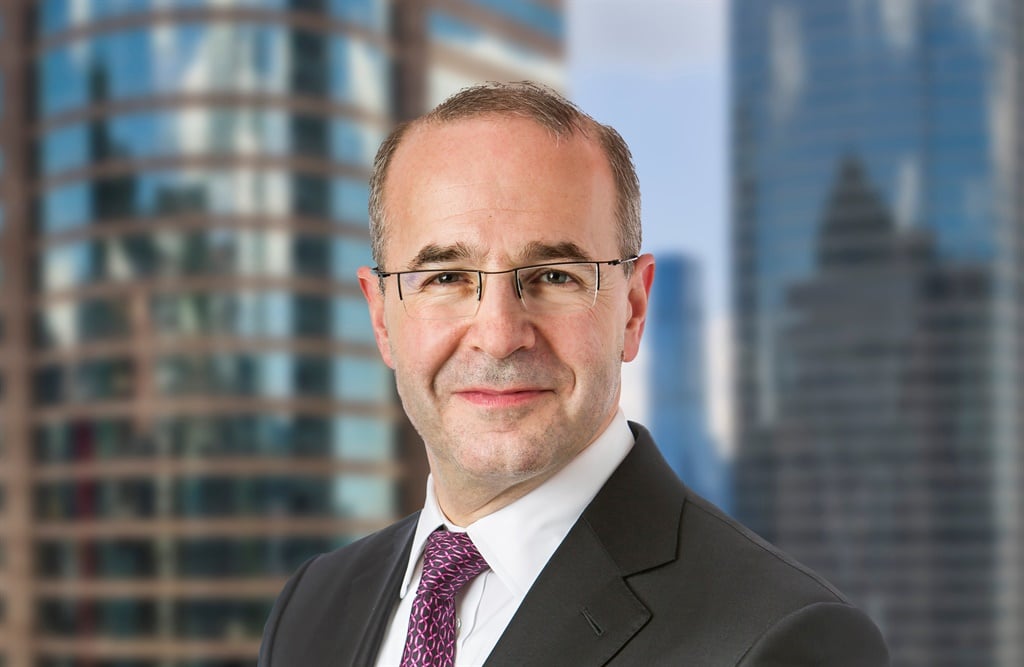
McKinsey may have admitted that it had made mistakes in its dealings with Eskom, and apologised, but it has had to deal with the fall-out from its dealings with the parastatal and state capture.
“The legacy is going to be with us for another 10 years. The ramifications are deep and wide; it’s not just about being sorry,” chief executive of Business Leadership South Africa, Bonang Mohale, said.
Addressing a gathering at the Gordon Institute of Business Science, the newly appointed head of the consulting firm conceded McKinsey had made mistakes in its dealings with Eskom.
McKinsey’s global managing partner, Kevin Sneader issued an apology to South Africa this week for his firm’s involvement in the capture of the country’s state-owned enterprises.
Sneader admitted to a lack of oversight and an inadequate due diligence process, and acknowledged that the firm had lost the confidence and trust of many South Africans.
In his opening remarks, Sneader said he was “very sorry personally and on behalf of McKinsey and Company, for the fact that we have had anything to do with any of the issues surrounding state capture.”
He announced the firm would repay R902 million in fees to Eskom it had earned through the Turnaround Programme contract at the parastatal during 2016.
He also detailed comprehensive changes to McKinsey’s processes in order to strengthen compliance activities when dealing with public sector clients across its global businesses.
Tell the truth and tell it quickly
While Mohale said the apology was “better late than never”, he castigated Sneader and McKinsey for its unethical behaviour: “I’m hoping you’ll begin to understand not only the frustration, but the bone-deep anger at state capture because it has raped the resources of this country at the time that we need it the most.”
Mohale urged Sneader to “tell the truth, the whole truth, and tell it quickly. It took McKinsey inordinately long to get to where you are, but we are happy that eventually that you did.”
Mohale added he hoped McKinsey would resolve the issue of repaying any interest earned on its Eskom fees, and that the company would approach Judge Raymond Zondo of its own accord to provide the deputy chief justice with any information his state capture commission may require.
The commission was established by former President Jacob Zuma in January, as recommended by former Public Protector Thuli Madonsela in her report on state capture.
The first hearings are scheduled to begin in August.
McKinsey: Correcting course
Sneader said during the course of its work for Eskom, McKinsey’s governance processes had failed and the company hadn’t focused on the broader context and risk.
While internal investigations by two law firms found no evidence to support allegations of corruption and bribery during its dealings with Eskom and Gupta-linked Trillian Capital Partners, he said McKinsey’s commercial approach led to a fee that was too large.
“The fee was weighted towards recovering our investment at a time when the power utility was on a financial cliff edge.”
Finally, Sneader said McKinsey’s third mistake was to not admit to any wrongdoing: “We did not say sorry quickly enough and clearly enough. It has taken too long to find out what happened and we have come across as arrogant and unaccountable.
“No one at McKinsey thinks we can go back to business as usual,” Sneader added.
“We are not trying to draw a line under anything, but want to find a way to make a contribution and recognise this is a long path.”
Discussing plans to rectify the mistakes, Sneader said McKinsey hoped to be part of the solution: “If we can find some way to be of value to South Africa we stand ready to assist. We are willing to commit resources on a no cost basis to the country’s priorities such as job creation, economic growth and attracting inward investment.”
Leadership and rebuilding a broken society
“We are feeling the depth of anger at state capture. We do not operate in a vacuum, but rather with a licence from society, which is fully under question because of what has happened. It pains me enormously that we are where we are,” Sneader said.
Mohale argued that leadership was about putting systems and processes in place “in the likely event that the ball gets dropped. The more you equivocate and postpone action, the more you lose the opportunity to regain trust. And trust matters.
“When values collide with profit, values should always triumph every single time. This is not just an existential crisis – this goes to the nub of what leadership is about.”
He added that South Africa was trying to rebuild a broken society, and called on all of the chief executives of large entities represented by Business Leadership South Africa to join civil society in pursuing a broader corporate citizenship mandate.
“We cannot simply have a conversation about the society we want, but must rather question what we have we done to get to where we are today. Business must join with civil society to finally hold public servants finally accountable and to insist on being involved in policy making.
“Companies who say they are sorry must take the money they are repaying and fund civil society movements. We must redouble our efforts, as all of us are rotten to the core, Mohale said.
“We must ask how we can actively contribute to nation building so we are able to achieve social cohesion in our lifetime. Now is the time to be judged on our actions, not only on our words,” he concluded.
» City Press is a media partner of the Gordon Institute of Business Science’s forums.




 Publications
Publications
 Partners
Partners








